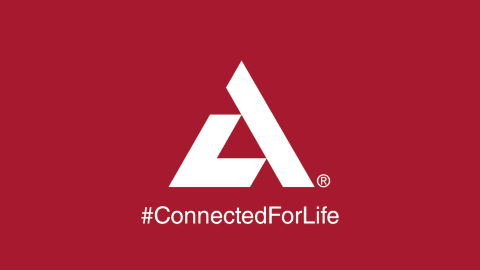As the Gulf Coast experiences the impact of Hurricane Laura, the diabetes community is rallying to make sure that people living with diabetes—especially those who depend upon insulin—are fully supported.
The Diabetes Disaster Response Coalition (DDRC), which is comprised of the nation’s leading diabetes organizations, is urging all people with diabetes and their loved ones to reach out if they experience shortages of diabetes supplies and need information on how to stay healthy and safe. Major storms may knock out electricity for hours, days, or longer, making it difficult to refrigerate or store life-saving insulin. Medication and diabetes supplies may be lost, damaged, or run out, and drinking water and healthy food may be difficult to find.
“When life is in a crisis mode, diabetes adds even more obstacles,” says Kelly Mueller, Vice President, Consumer and Community Impact, American Diabetes Association and Co-Chair of the DDRC. “We know securing medication can be a challenge. Our goal, as a coalition, is to ensure that people with diabetes have swift and adequate access to healthcare, information and supplies.”
During an emergency, it is critical for people with diabetes to have access to the medications and the blood glucose testing supplies needed to maintain blood glucose control, and to prevent serious sudden complications such as hypoglycemia or hyperglycemia.
Additional resources include two phone lines for assistance and downloadable guides:
- People with Diabetes: 1-800-DIABETES is available from 9:00 a.m. to 5:30 p.m. ET, Monday through Friday for individuals with diabetes who have questions about diabetes medicine and supplies: diabetesdisasterresponse.org/diabetes-resources-update
- Health Care Providers: 1-314-INSULIN is a hotline for physicians and health care providers to report diabetes supply shortages and request support.
- First Responders and Health Care Providers: DDRC Insulin Switching Guide: In the event that a person must switch insulin, this resource provides guidance for professionals: diabetesdisasterresponse.org/healthcare-providers-resources
- Tips for First Responders are also available on the DDRC website with critical diabetes information to support people in need of help: diabetesdisasterresponse.org/healthcare-providers-resources
“We encourage all health care providers to reach out to their patients with diabetes and urge them to connect with us when they need support,” says Carol Atkinson, Director, Insulin for Life USA and Co-Chair of DDRC.
The DDRC and the Diabetes Patient Preparedness Plan can be found on Facebook and Twitter.
# # #
,About the American Diabetes Association
Every day more than 4,000 people are newly diagnosed with diabetes in America. More than 122 million Americans have diabetes or prediabetes and are striving to manage their lives while living with the disease. The American Diabetes Association (ADA) is the nation’s leading voluntary health organization fighting to bend the curve on the diabetes epidemic and help people living with diabetes thrive. For nearly 80 years the ADA has been driving discovery and research to treat, manage and prevent diabetes, while working relentlessly for a cure. We help people with diabetes thrive by fighting for their rights and developing programs, advocacy and education designed to improve their quality of life. Diabetes has brought us together. What we do next will make us Connected for Life. To learn more or to get involved, visit us at diabetes.org or call 1-800-DIABETES (1-800-342-2383). Join the fight with us on Facebook (American Diabetes Association), Twitter (@AmDiabetesAssn) and Instagram (@AmDiabetesAssn).
About the Diabetes Disaster Response Coalition (DDRC)The American Diabetes Association (ADA), Insulin for Life–USA (IFL), and the Juvenile Diabetes Research Foundation (JDRF) are the founding partners of the Diabetes Disaster Response Coalition (DDRC), a coordinated disaster-response effort with the American Association of Clinical Endocrinologists (AACE), the Association of Diabetes Care and Education Specialists (ADCES), Beyond Type 1, Children with Diabetes (CWD), the College Diabetes Network, the Diabetes Research Institute Foundation, DiaTribe, the Endocrine Society, Insulet Corporation, The Leona M. and Harry B. Helmsley Charitable Trust, Lilly Diabetes, Novo Nordisk, Sanofi, Sociedad Puertorriquena Endocrinologia Y Diabetologia (SPED), Taking Control of Your Diabetes (TCOYD), and T1D Exchange.
The Coalition is focused on its roles as educator, communicator, and advocate, leveraging its collective resources and influence to bring together the diabetes community, public agencies, disaster response organizations, retailers, elected officials, drug and device manufacturers and others to (1) prepare people with diabetes and their caregivers with the information and resources to remain healthy and safe during a disaster; (2) remove roadblocks to patient access to prescriptions and diabetes supplies during times of disaster; (3) support and increase access to diabetes specialists to assist with diabetes care in shelters and other health care settings during times of disaster by sharing information between diabetes specialists/providers and those organizations that place volunteers on the ground; and (4) serve as a communications hub during times of disaster, helping to identify and address unmet medical needs of people living with diabetes by connecting them to providers on the ground.

